Wehubit, A glimp of our successes

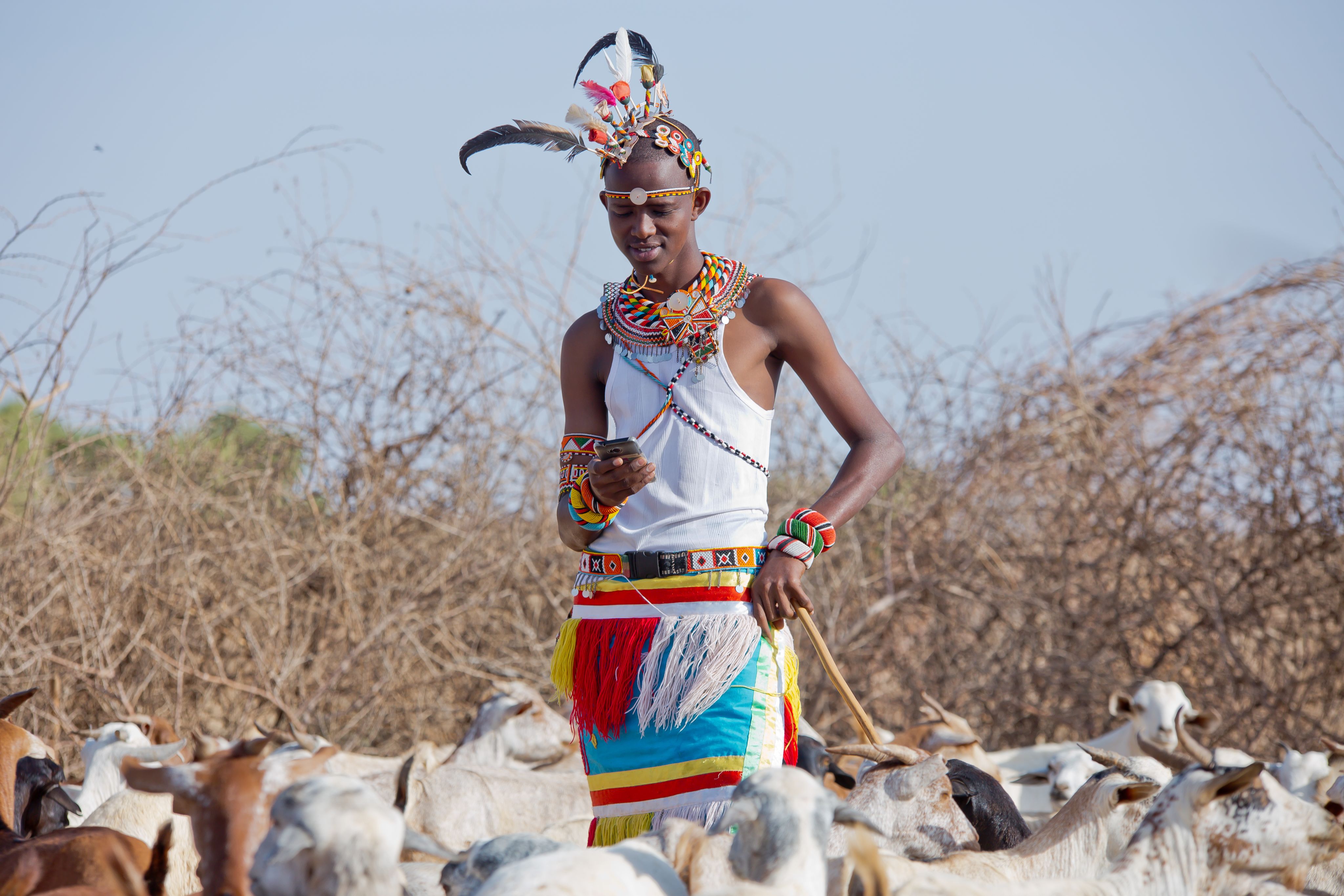
Mama Rescue
When we embarked on our partnership with Wehubit in November 2019, we were already four years into our mission to address the critical delays in maternal and newborn healthcare access, which were plaguing the Rakai and Kyotera districts. These delays, spanning from the decision to seek care to receiving quality services, were proving to be barriers, leading to unnecessary mortality among Ugandan mothers and babies.
At the heart of our approach was a recognition of the multifaceted nature of these challenges, necessitating a holistic, community-based strategy. With the support of Wehubit funding, our vision expanded exponentially. The introduction of the Mama Rescue Project transformed access to care by leveraging innovative technology, such as a mobile app connecting laboring women with transportation services. In just over two years, Mama Rescue facilitated the safe transportation of over 27,000 women in labor and over 3,000 emergency referrals, significantly reducing response times and saving countless lives.

Critical to our success was our collaborative approach, fostering partnerships with local stakeholders, including the dedicated motorcycle and automobile taxi drivers who became integral to the Mama Rescue Project. The recognition from the Ugandan Ministry of Health in 2022 further validated our efforts.
Looking ahead, we envision a future where our impact transcends geographical boundaries. Plans to scale our proven innovations across the Masaka Region and western Uganda reflect our commitment to sustainability and systemic change. By embedding these innovations into government health systems and fostering lasting partnerships, we aim to redefine standards of care and ensure lasting impact for generations to come.
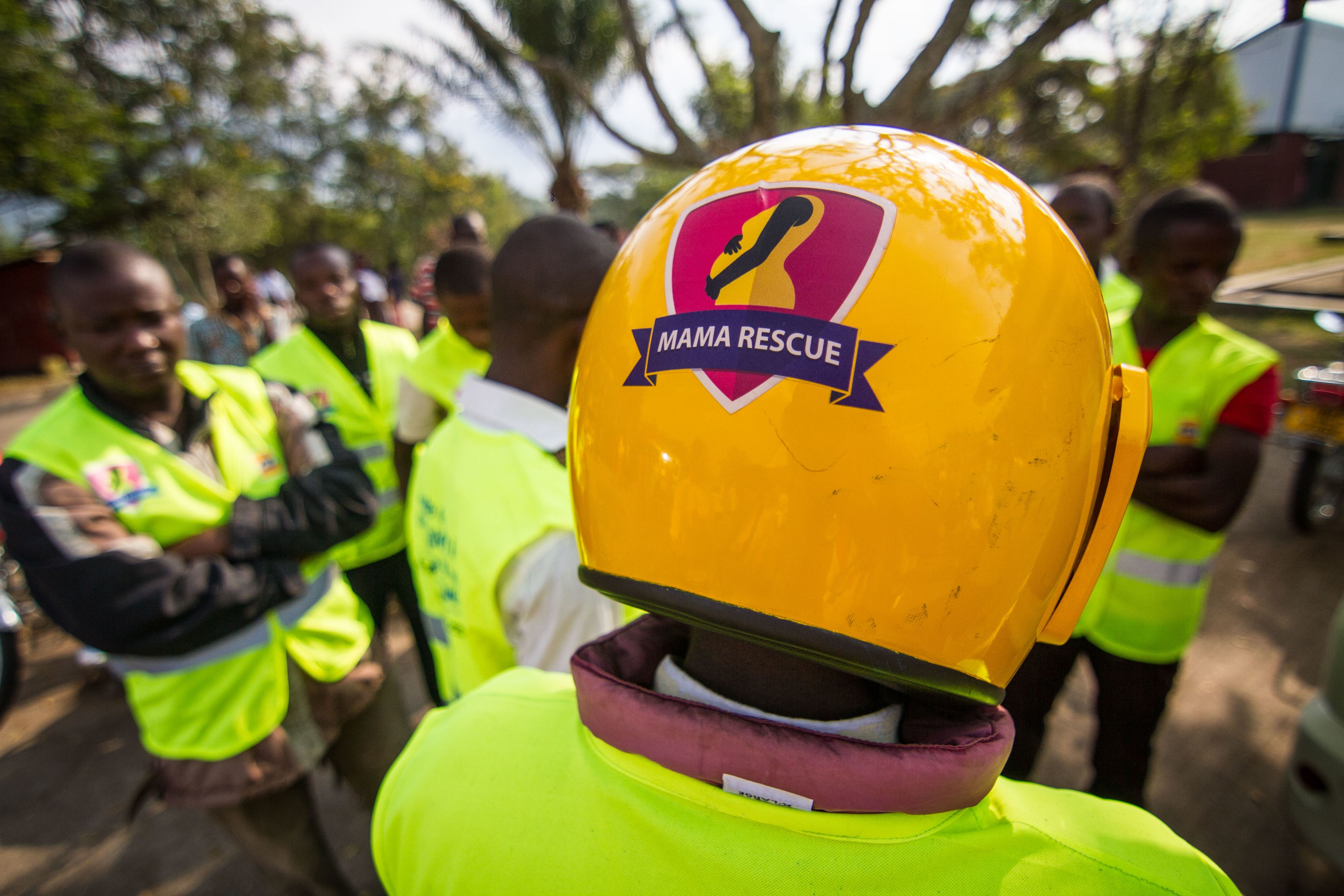
© BAMA
© BAMA
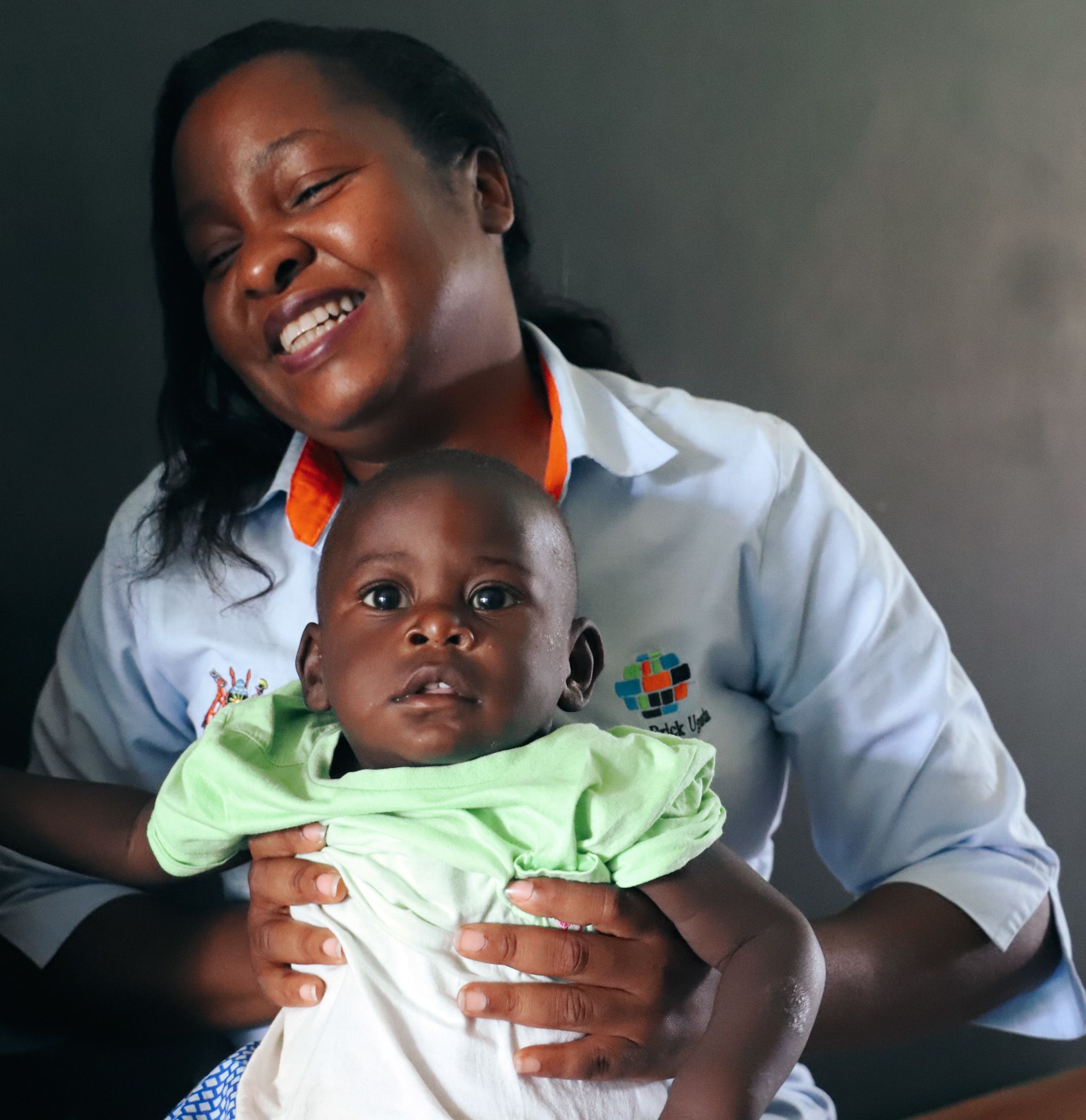
© Lucie Bricout, Wehubit, Enabel
© Lucie Bricout, Wehubit, Enabel
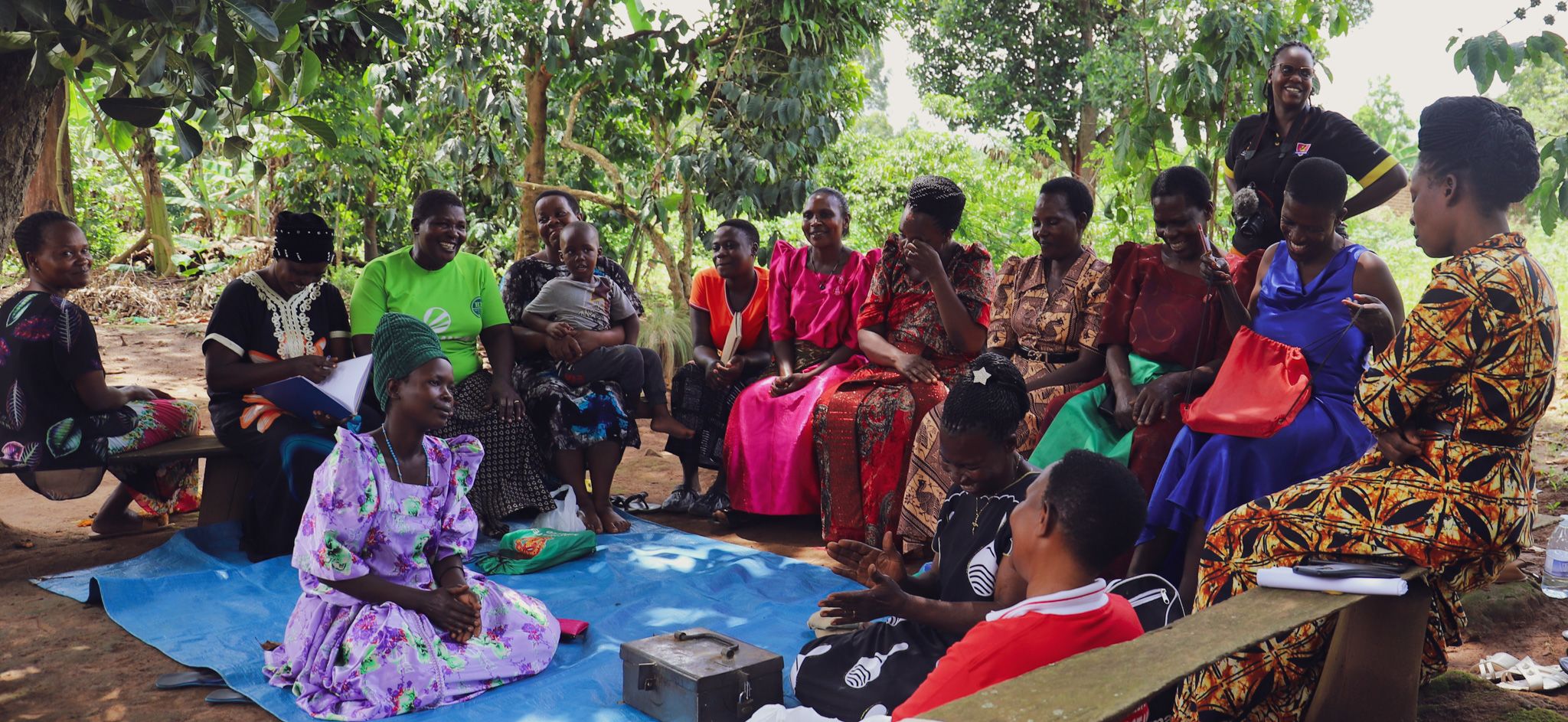
© Lucie Bricout, Wehubit, Enabel
© Lucie Bricout, Wehubit, Enabel
SafeCare
In 2019, the Ministry of Health Zanzibar approached us, PharmAccess, with a visionary goal: to introduce digital solutions that would transform the health system on the islands. At that time, we had already developed innovative mobile-based digital SafeCare toolkits and were well-versed in the utilisation of the OpenIMIS system to gather healthcare utilisation data, thanks to our work in Tanzania. However, what was lacking was the means to implement and demonstrate the transformative power of these solutions. This is where Wehubit stepped in, providing funding at the perfect moment to kickstart the demonstration phase of the project.
The journey was not without its challenges. As we embarked on the project, we faced obstacles such as the sudden onset of the COVID-19 pandemic, which disrupted our initial plans. However, resilience and determination propelled us forward. We tackled systemic issues within the health system, including the establishment of a Quality Improvement Unit within the Ministry of Health and the integration of data collection systems to minimise duplication and streamline processes.

Despite these challenges, we achieved significant milestones that marked moments of triumph. One such milestone was the adoption of SafeCare standards into Zanzibar's continuum of care, leading to the development of a digital quality rating tool that empowered trained assessors to evaluate healthcare facilities' performance. Additionally, our collaboration with other Ministry of Health partners, like D-Tree's Jamii ni Afya project, enabled us to leverage resources and accelerate the scale process.
A pivotal achievement in our scaling journey was the development of an OpenIMIS-based digital app hosted on the Google Play Store. This innovation not only strengthened the cost-effectiveness of the project but also facilitated remote updates, saving time and resources.
Looking ahead, we envision continued growth and sustainability for our project. Over the next five years, we aim to transition our digital models into routine work within the Ministry of Health, fostering a culture of data use and decision-making. We will capitalise on opportunities for integration with other health information management systems to maximise efficiency and improve the quality of care.
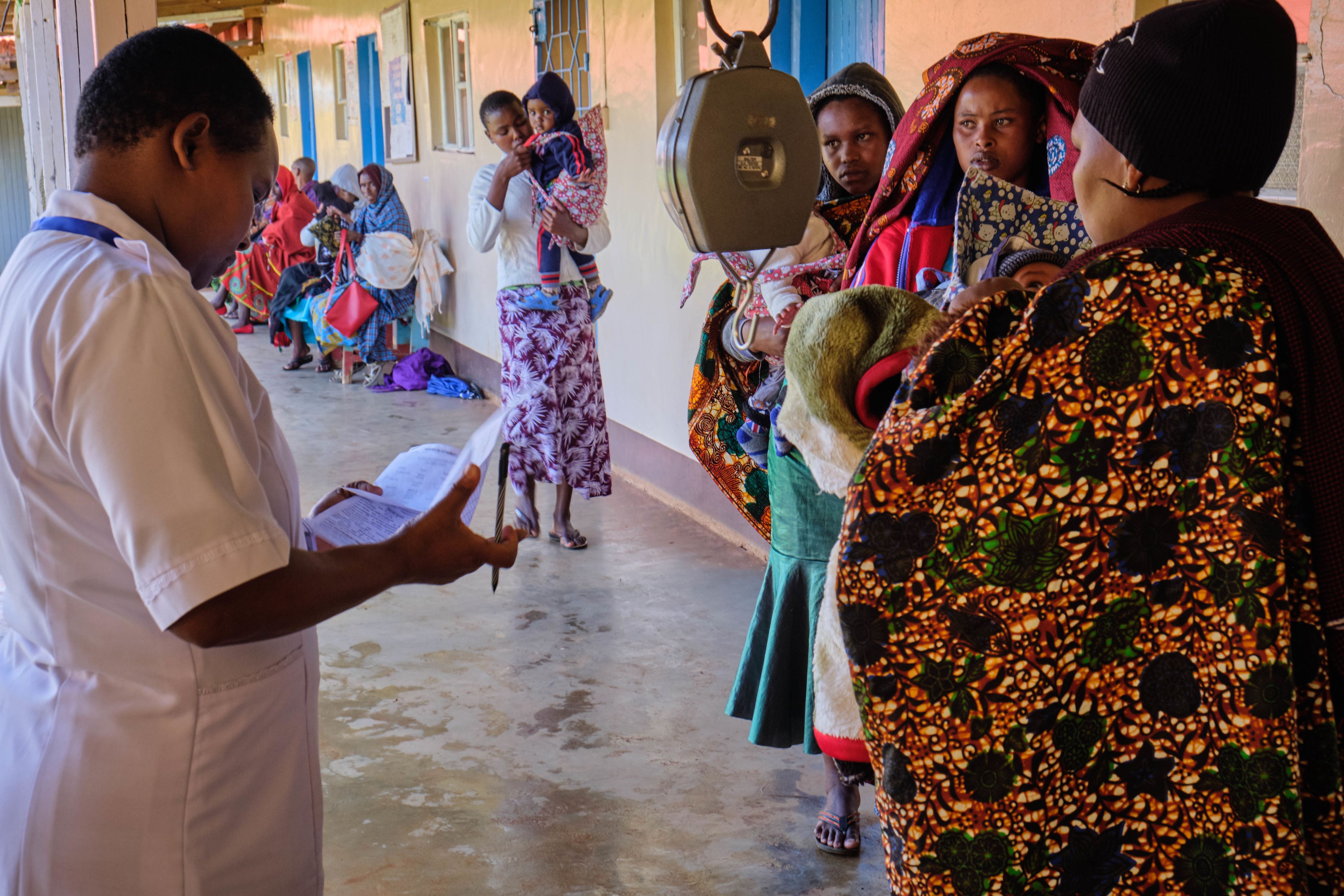
© PharmAccess
© PharmAccess
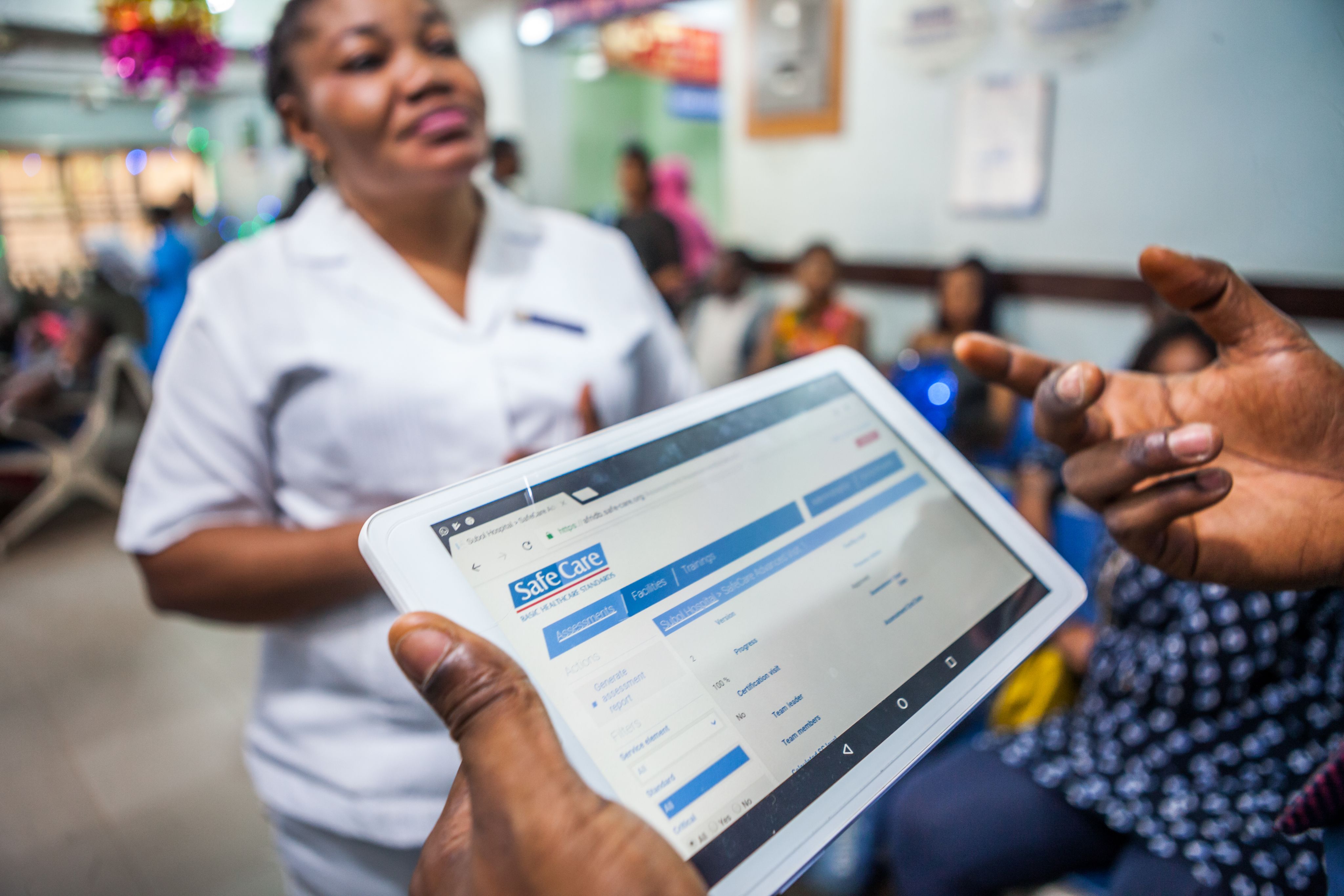
© PharmAccess
© PharmAccess
AirQo
Let's rewind to when AirQo first received funding from Wehubit. At that time, our project was primarily focused on Kampala, with digital solutions tailored to address air quality challenges in this bustling city. However, we knew that our impact could extend far beyond the boundaries of Kampala. With the support of Wehubit funding, we envisioned expanding our reach to new Ugandan cities, such as Fort Portal, Jinja, and Kira. Scaling meant more than just geographic expansion; it meant deepening our engagement with local communities, policymakers, and educational institutions to create lasting change.
Of course, no journey is without its challenges. In the early stages of the project, we faced the daunting task of scaling amidst the COVID-19 pandemic. Lockdowns and travel restrictions posed significant obstacles to our team, particularly concerning physical installations and face-to-face engagements with stakeholders. There were moments of uncertainty, but we persevered, adapting our strategies to overcome these challenges.
Despite facing obstacles, our project reached significant milestones. The enthusiastic support from city leadership in Jinja and Fort Portal was a testament to the importance of our work. Witnessing cities incorporate air quality improvement initiatives into their budgets and policies was immensely gratifying. Knowing that our digital solutions continued to operate beyond the project timeline reassured us that our efforts were making a lasting impact.
Reflecting on our scaling journey, one crucial factor stands out: partnerships. Our collaborations with city authorities, government ministries, and local stakeholders were instrumental in driving our expansion efforts. By securing buy-in from both technical and political leaders, we were able to garner the support needed to implement our solutions effectively.
Looking ahead, the future of AirQo is bright. In the next five years, we aspire to extend our reach to more African countries and cities, building upon the foundation we've laid in Uganda. Our goal is ambitious but achievable: clean air for all African cities. To realise this vision, we will continue refining our digital solutions, forging strategic partnerships, and securing the necessary funding to drive our objectives forward.
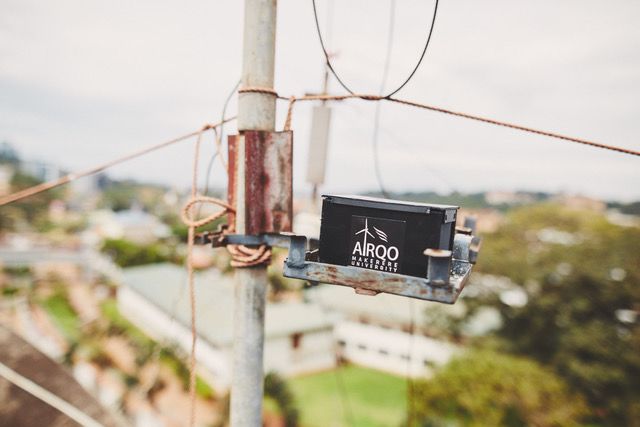
© AirQo
© AirQo
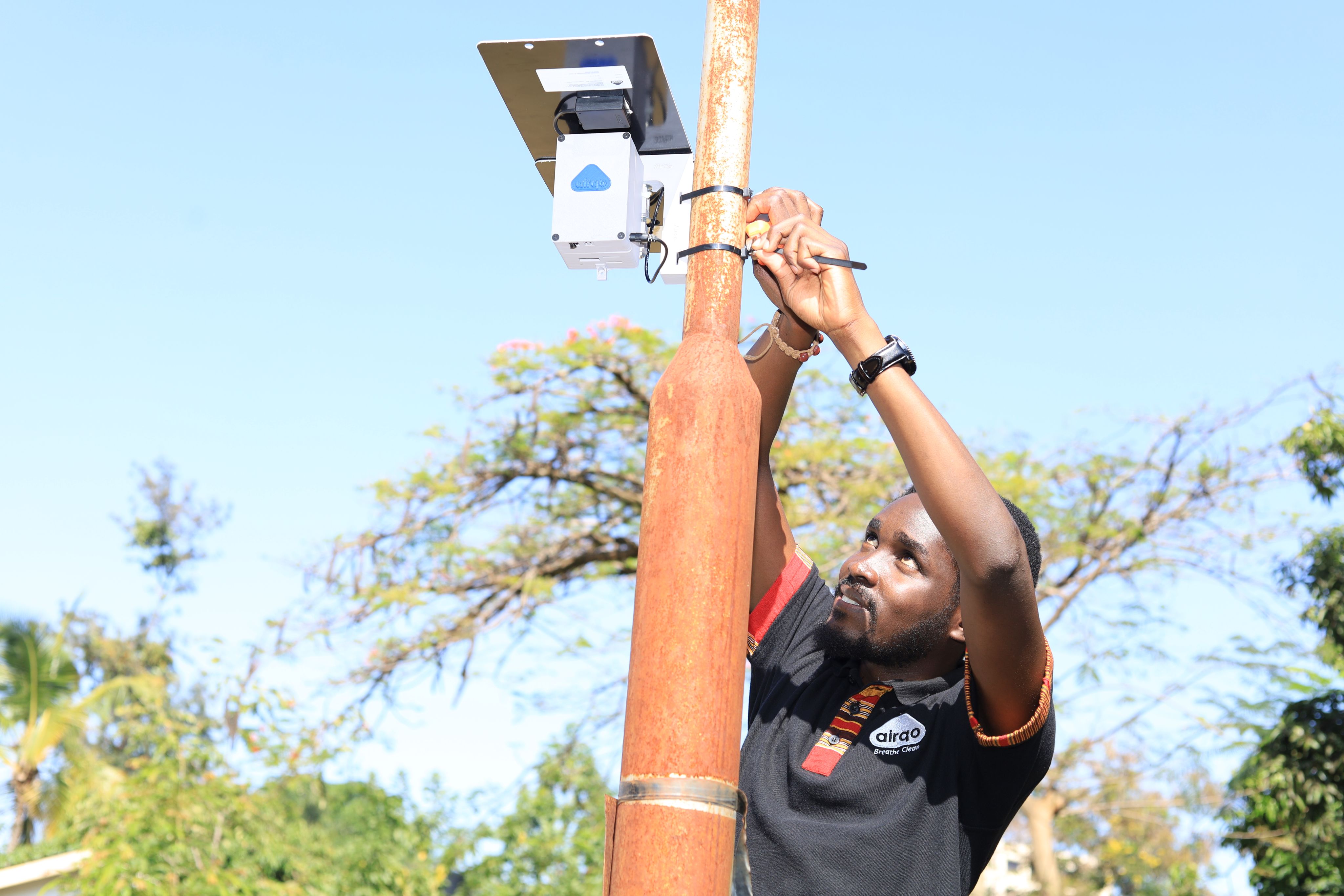
© AirQo
© AirQo
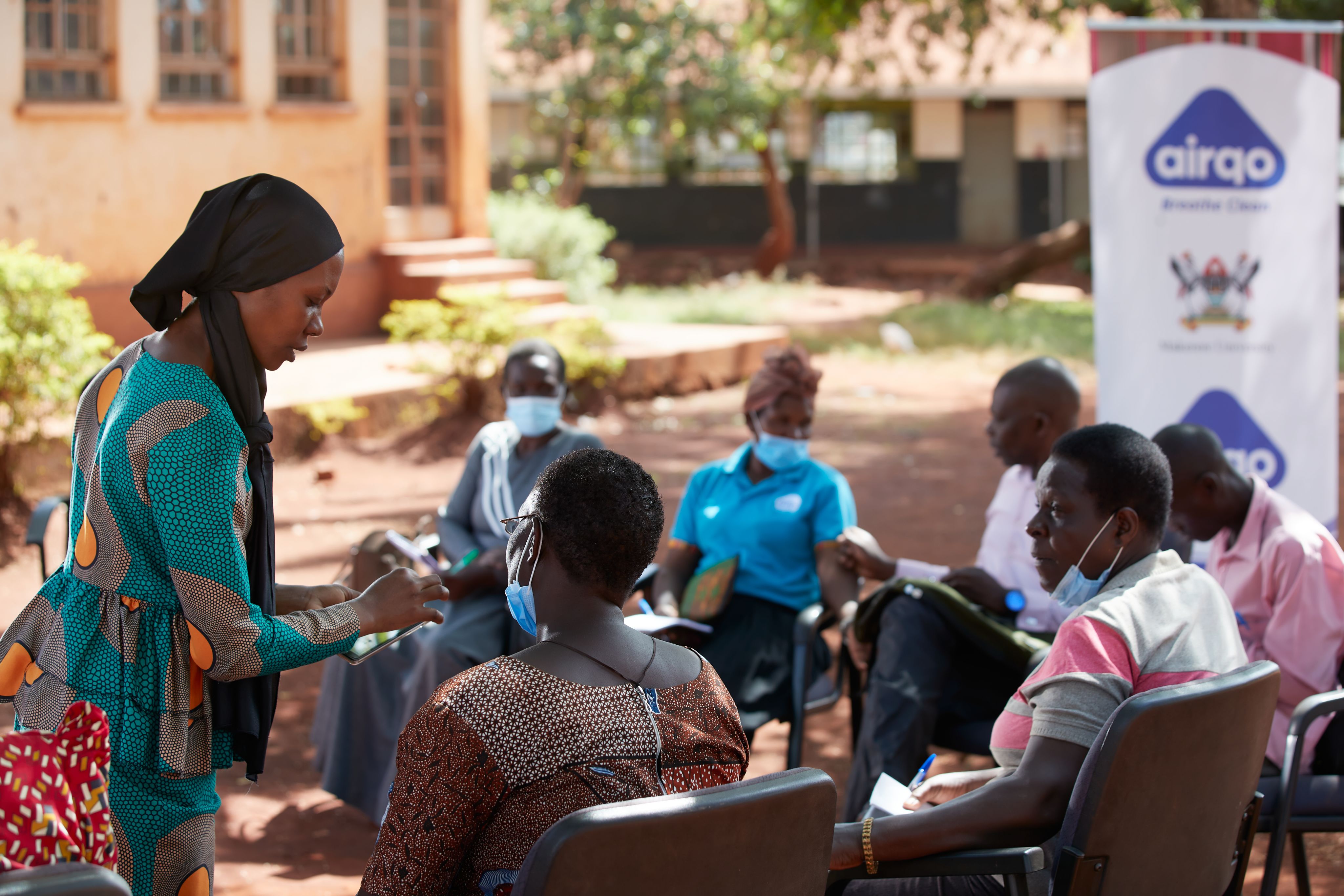
© AirQo
© AirQo
MediCapt
When we first received funding from Wehubit, our vision was clear but the path ahead was laden with challenges. Having successfully piloted and scaled MediCapt in Kenya, extending the project to a conflict-affected region in the Democratic Republic of Congo (DRC) seemed daunting yet imperative.
The Wehubit funding served as a catalyst for us to embark on this ambitious endeavor. The objective was not merely to expand the reach of MediCapt but to adapt it to a new context fraught with complexities. From poor connectivity to limited IT infrastructure, the challenges seemed insurmountable. However, fueled by determination and collaboration, we pushed forward.
The early stages of the project were riddled with setbacks. Initial partners faltered, prompting us to pivot and partner with HEAL Africa in Goma, North Kivu. This shift, though challenging, proved instrumental in the evolution of MediCapt. It led to the development of an expanded toolkit, ensuring adaptability and sustainability beyond the project's initial scope.
Amidst doubt and uncertainty, moments of success emerged as milestones. Transitioning from fictitious cases to real patient applications marked a significant achievement. The creation of videos in collaboration with HEAL Africa not only showcased the project's success but also facilitated its communication and replication.
Central to our project's success was effective collaboration and partnerships. Strategic alliances with organisations like HEAL Africa paved the way for scaling. Looking ahead, the vision for MediCapt is expansive. In five years, we envision widespread adoption across facilities and government entities, transforming the documentation of conflict-related sexual violence.
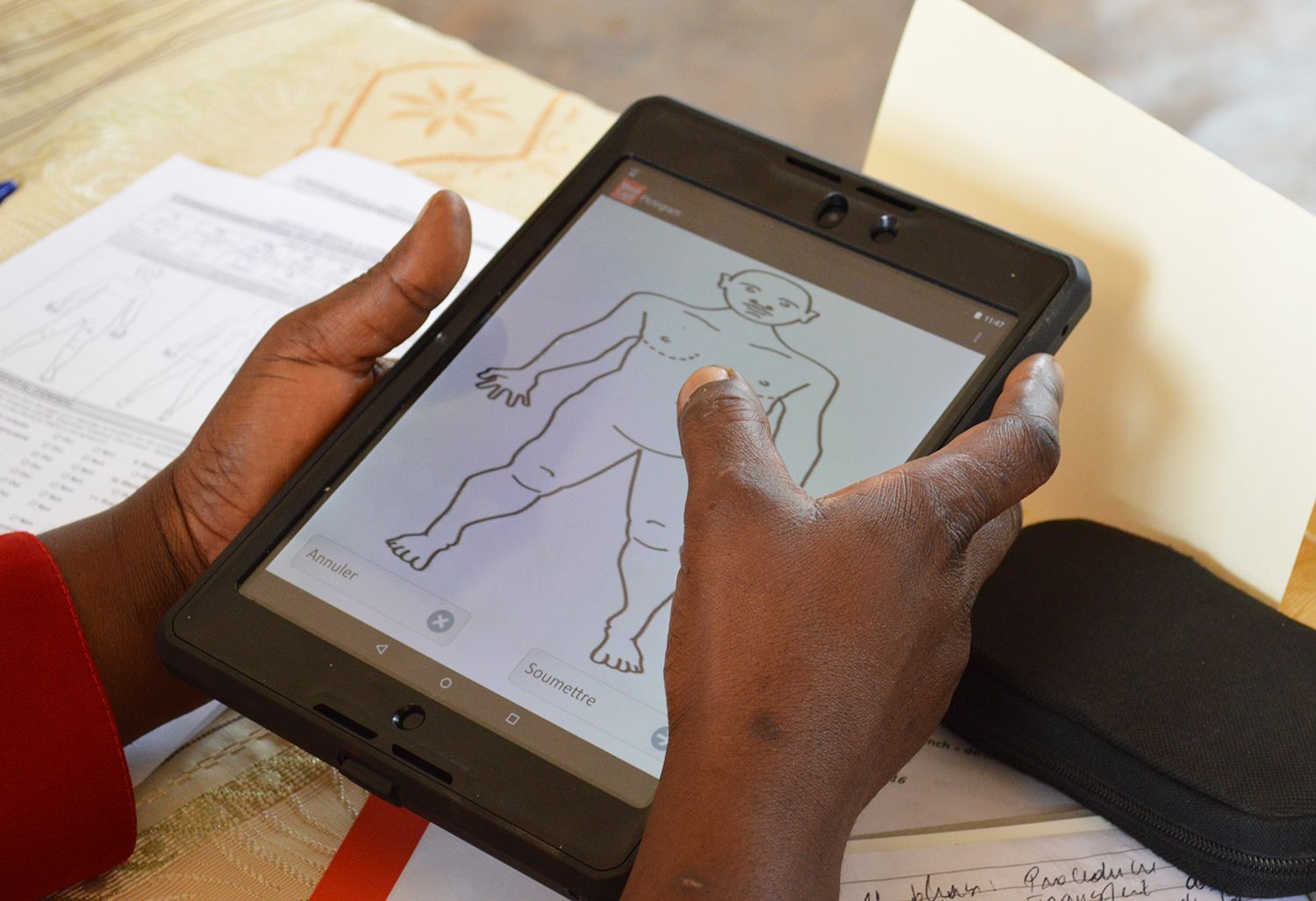
© PHR
© PHR
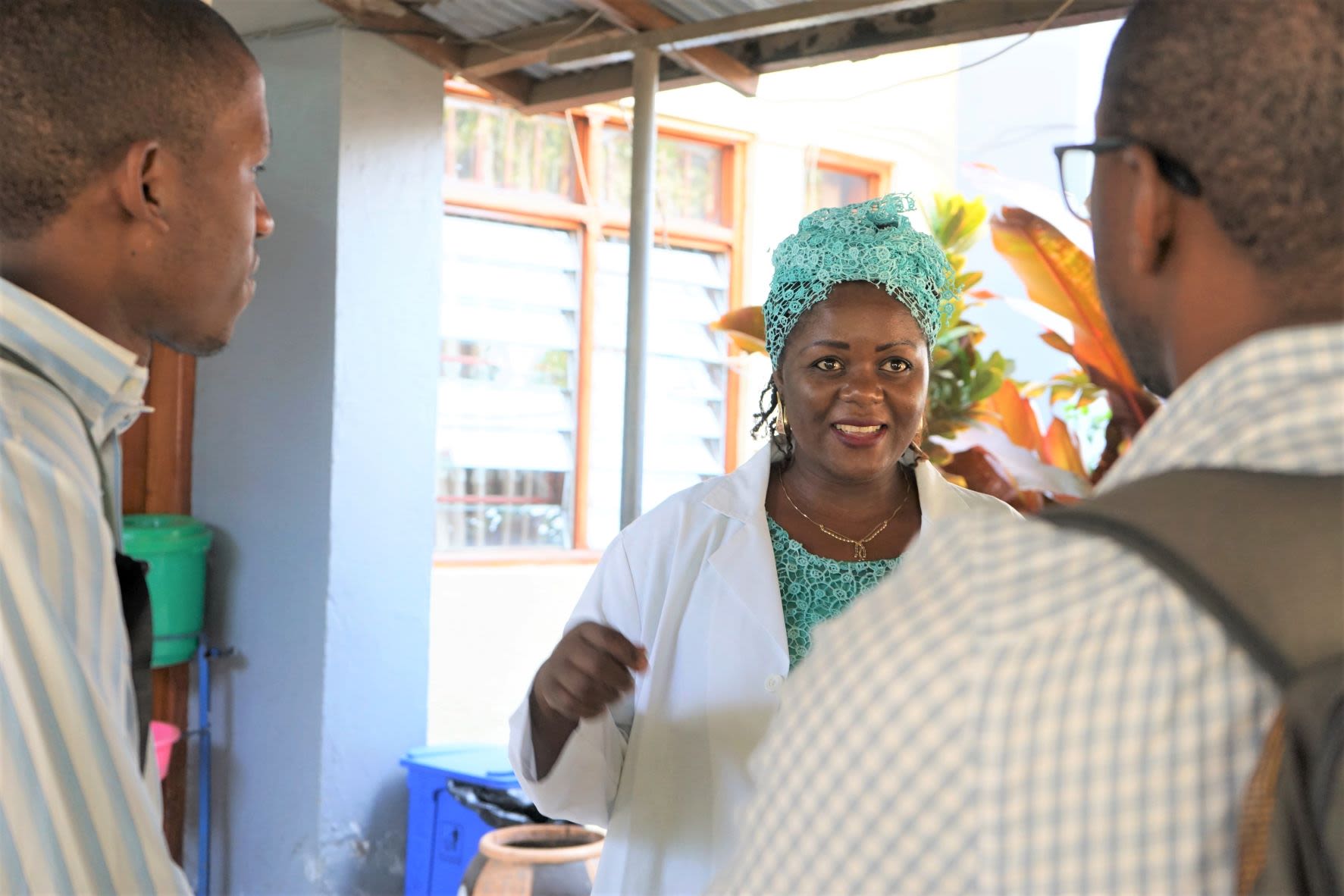
© PHR
© PHR
SANCOTIC
When we set out on this adventure, we had already made significant strides in the ICT and health sector with our MobiSan project. However, with the MobiSan project concluding in 2018, we recognized the need for continued innovation and consolidation of our achievements. The inception of the SANCOTIC project was born from this vision, aiming to leverage ICTs to further enhance community health services.
Receiving funding from Wehubit was a pivotal moment for us. It not only validated our vision but also provided the necessary resources to propel our project forward. With the support of Wehubit, we envisioned scaling our efforts to reach new heights in digital health innovation.
The early stages of the project were not without challenges. Changes in policy and unforeseen circumstances, such as the COVID-19 pandemic and security concerns, tested the resilience of our team. However, these obstacles only fueled our determination to adapt and innovate. The shift from SMS messages to a comprehensive application-based system was a testament to our agility and commitment to excellence.

Milestones along the way marked moments of triumph for the SANCOTIC project. The establishment of a digital training system for community health workers stood out as a significant achievement, transforming capacity-building efforts in community health. The positive reception from both
community health workers and the Ministry of Health underscored the project's impact and laid the groundwork for future expansion.
As we reflect on our journey to scale, key achievements stand out. The collaboration with the Ministry of Health and the optimization of the digital system were instrumental in paving the way for broader implementation. Furthermore, the project's emphasis on inclusive design and content development set a precedent for future initiatives in similar contexts.
Looking ahead, we envision continued growth and impact over the next five years. Our partnership with the Ministry of Health positions us as pioneers in digitising health interventions at the community level. Plans to extend the system to additional health districts demonstrate our commitment to reaching more beneficiaries and improving healthcare outcomes nationwide.
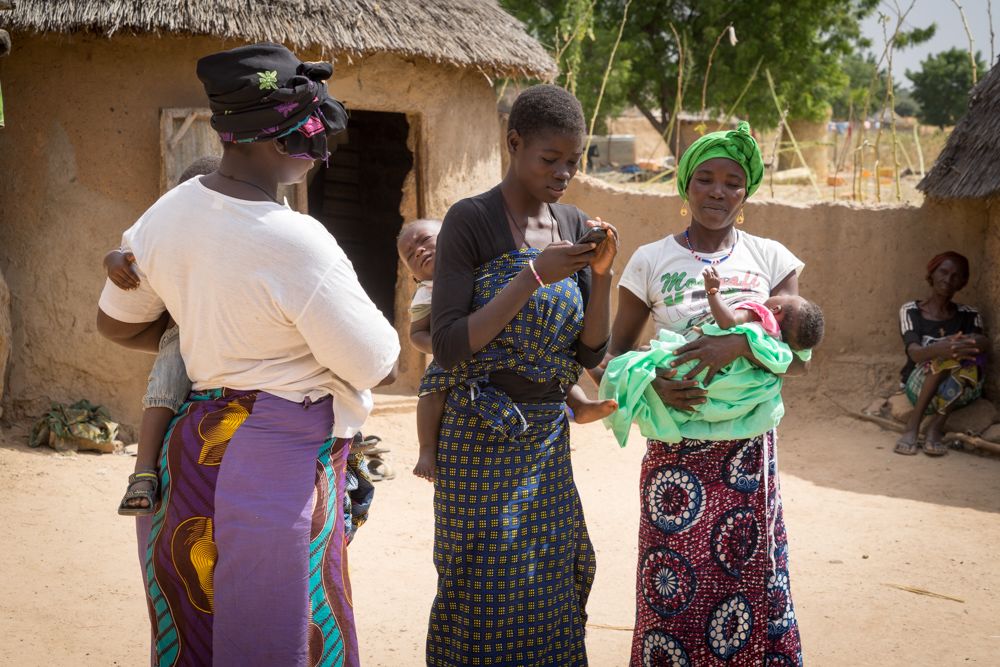
© Gret
© Gret
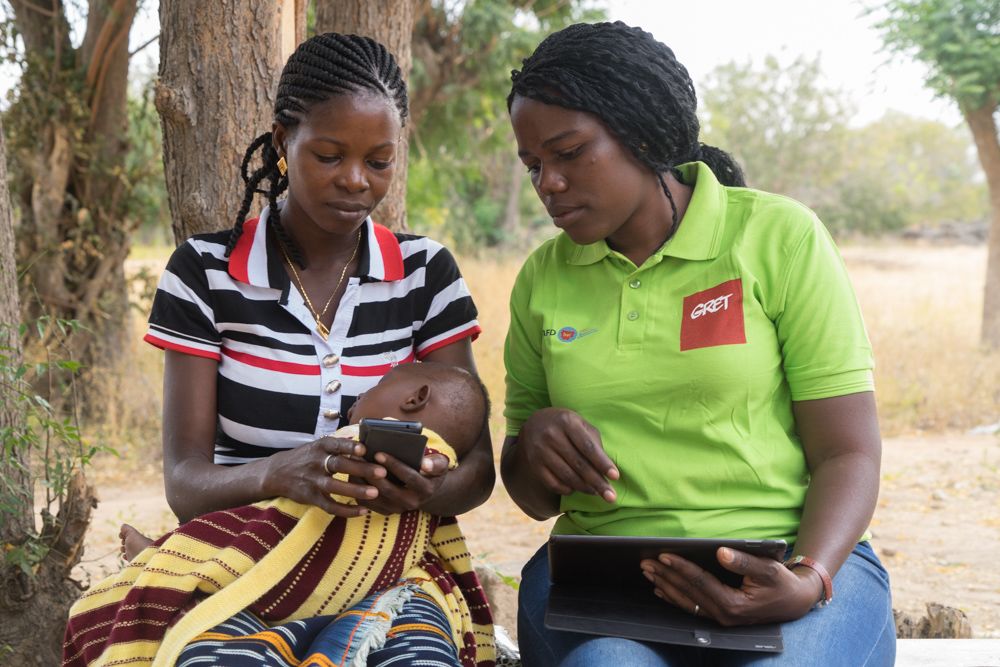
© Gret
© Gret
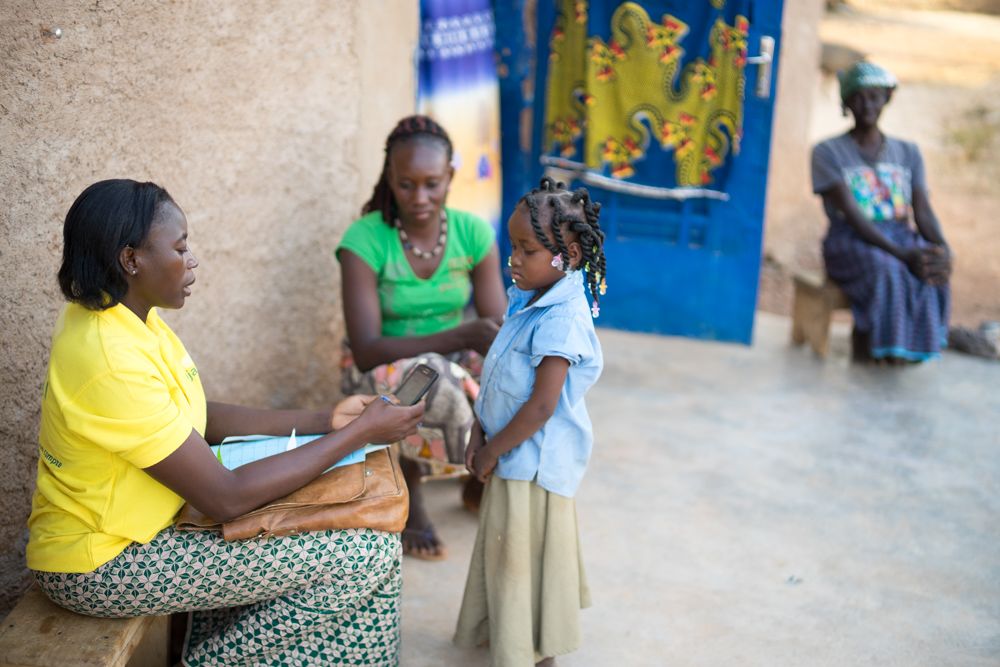
© Gret
© Gret
Do you want to contact us ?
wehubit@enabel.be




